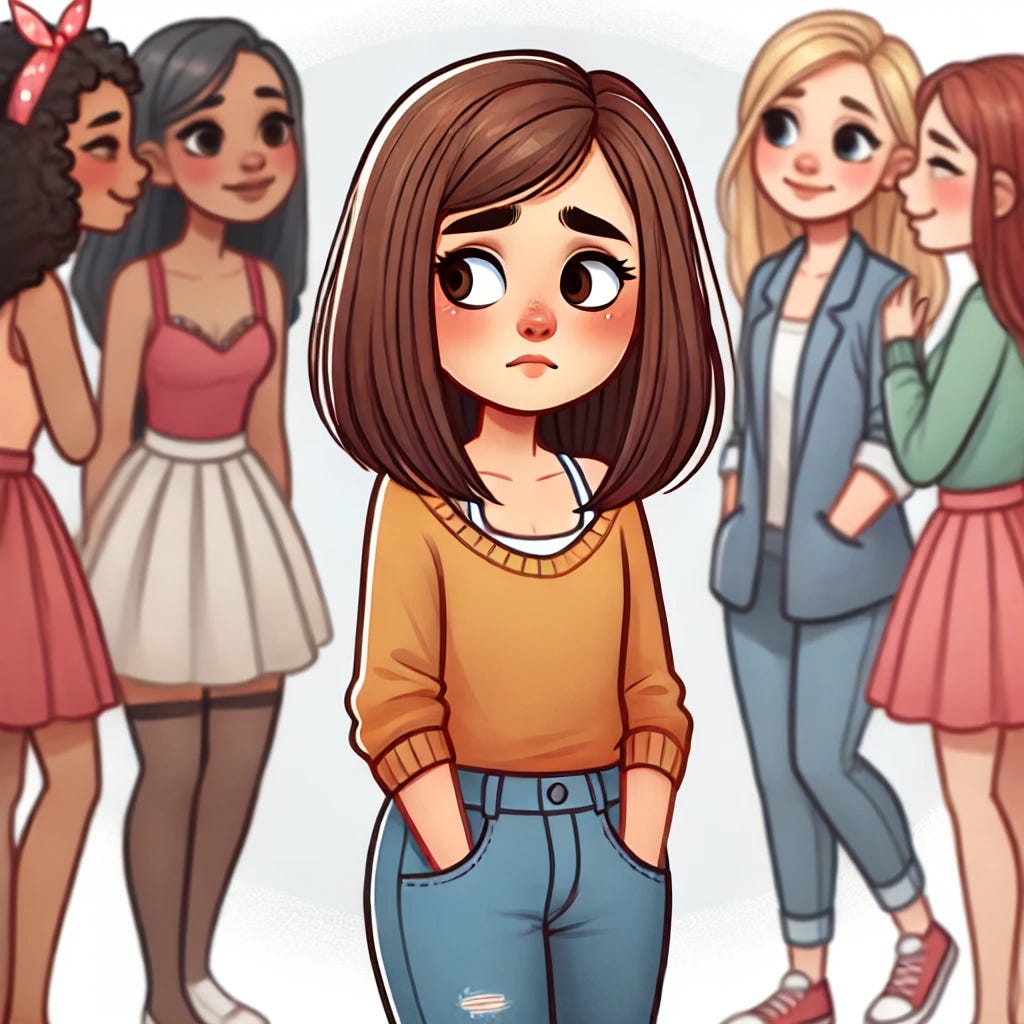Masking in Girls with ADHD, Autism, and DCD – New Findings for Advocates and Caregivers
New research
Why This Matters
ADHD and autistic girls, or those with developmental coordination disorder (DCD), often begin masking—hiding or suppressing their differences—during childhood. Unlike boys, their symptoms may be less obvious, leading to missed diagnoses and underestimated struggles.
A new study by McKinney et al. (2024) reveals essential insights into how early masking begins, how it develops, and its strong link to mental health issues like anxiety and depression.
What This Study Found – The New Insights
Here’s what’s new and critical for advocates, parents, and educators:
Masking begins early—by ages 11 to 14.
Neurodivergent girls with ADHD, autism, or DCD start masking at a young age, often before adolescence is even fully underway.
This is devastating to learn—young girls begin feeling they are unworthy or unsafe at such a tender age.
Both neurodivergent and neurotypical girls mask—but neurodivergent girls “act” or “pretend” more.
The study found that all girls engage in masking (hiding emotions or behaviors) and compensation (copying others in social situations).
However, neurodivergent girls showed much higher levels of assimilation—where they feel they need to actively change or suppress their true selves to fit in.
Masking increases with age.
The study found that older girls masked more than younger girls, suggesting that as social awareness grows, so does the pressure to camouflage.
Masking is a safety strategy in an unsafe world.
Girls often mask because it helps them navigate environments where being different feels unsafe.
The safer and more accepting the world becomes, the less girls feel the need to mask.
Masking is strongly linked to anxiety and depression—for all girls.
Higher levels of camouflaging predicted worse mental health outcomes in both neurodivergent and neurotypical girls.
This highlights the urgent need to address masking as part of early mental health interventions.
Why This Matters for Advocates and Caregivers
Girls who mask often appear to be thriving on the surface but may experience internal anxiety, exhaustion, and emotional distress. This can lead to burnout, misdiagnosis, or delayed support.
Advocates play a key role in recognizing masking early, ensuring neurodivergent girls receive appropriate accommodations and mental health care before their struggles escalate.
How Advocates Can Make a Difference
Educate Others About Masking – Raise awareness among teachers, parents, and healthcare professionals that masking can hide underlying distress.
Create Safer, Inclusive Environments – The safer girls feel, the less they mask. Advocate for school policies and social programs that allow girls to express themselves without fear of judgment or exclusion.
Screen for Mental Health Regularly – Encourage routine check-ins and screenings for anxiety and depression in both neurodivergent and neurotypical girls.
Push for Early Diagnosis – Girls who mask well are often diagnosed late. Advocate for earlier assessments and broader diagnostic criteria that reflect the subtler presentations of ADHD and autism in girls.
What You Can Do With a Girl You Love
Talk About Masking – Help girls understand what masking is and why they do it. Masking is a survival tool, not a personal failure.
Encourage Authenticity – Create environments where girls feel safe being their true selves.
Watch for Anxiety and Depression – If a girl seems withdrawn or overly stressed, consider that masking may be a contributing factor.
Advocate for Support – Whether at school or in social settings, girls benefit from accommodations that allow them to thrive without masking all the time.
Advocating for Neurodivergent Girls
Request Accommodations – Promote flexible learning environments, sensory-friendly classrooms, and quiet spaces that reduce the need for masking.
Support Self-Expression – Encourage girls to participate in groups or activities where they feel safe being themselves.
Foster Peer Understanding – Campaign for neurodiversity education in schools, helping peers understand and accept differences.
Building Self-Compassion and Acceptance
Girls often mask because they fear judgment, exclusion, or rejection. By promoting self-compassion and understanding, advocates can help shift the focus from “fitting in” to celebrating neurodivergent strengths.
Creating safer environments that reduce the need for masking benefits not only neurodivergent girls but also their neurotypical peers, leading to healthier, more inclusive communities.
Ultimately, the safer and more accepting our world becomes, the less girls will feel the need to hide who they are.
Want to Learn More?
Explore the full study by McKinney et al. (2024) for deeper insights into how masking shapes mental health outcomes for girls with ADHD, autism, and DCD.Thanks for reading the ADHD advocate.
I run ADHD support groups for women and a therapy practice.
I am also in the process of developing an affirming community where neurodivergent women can connect.
Kristen McClure MSW, LCSW







This explains so much of my experience as a late diagnosed autistic woman! Thank you for writing about this topic. If we can help identify girls before mental & physical health problems take hold, we could lessen so much suffering and unlock unrealized potential ✨️
For folks interested, the CAT-Q measures masking for neurotypical and neurodiverse folks: https://embrace-autism.com/cat-q/